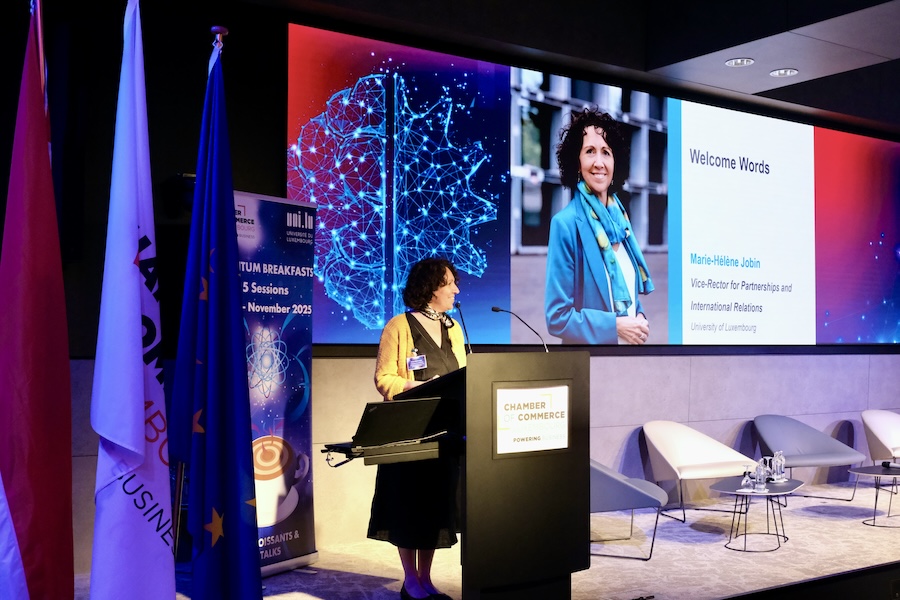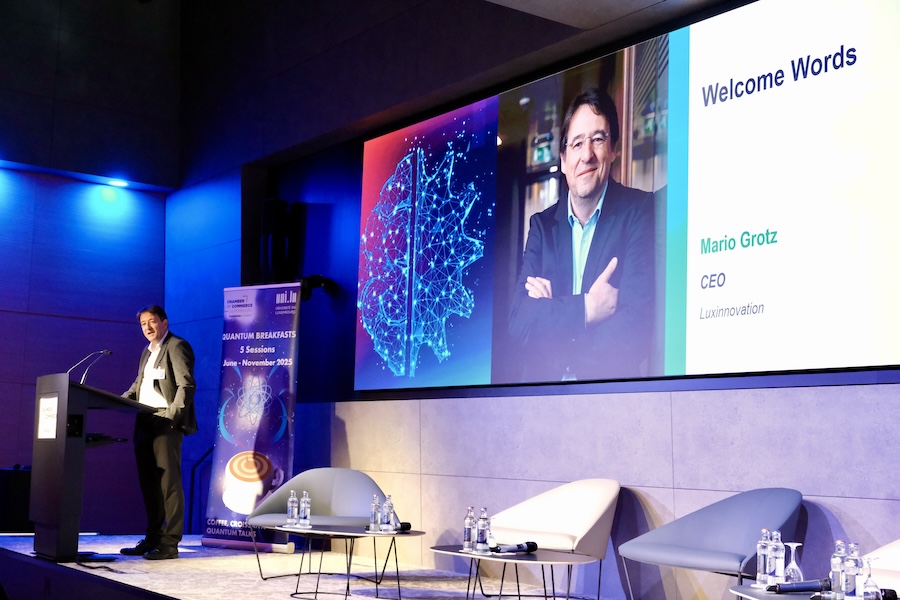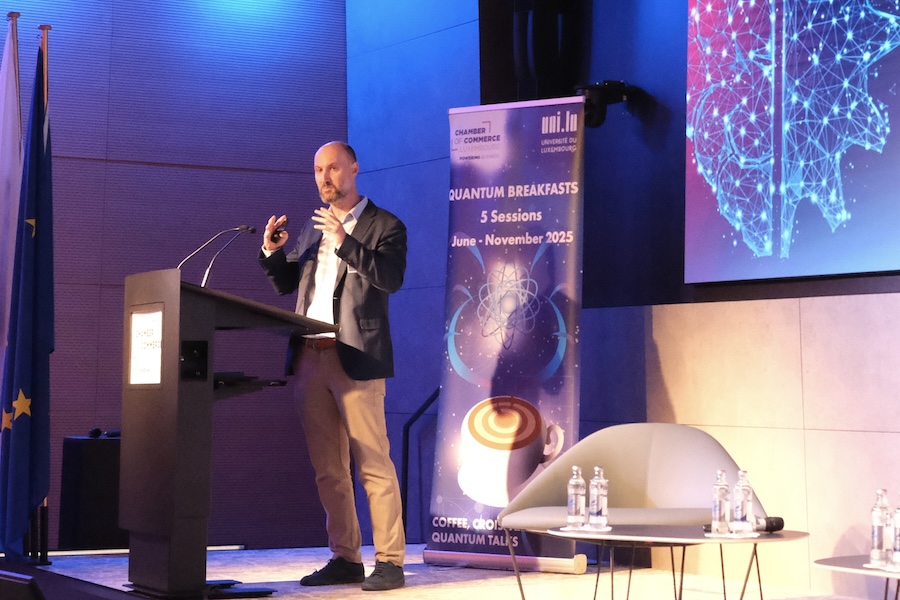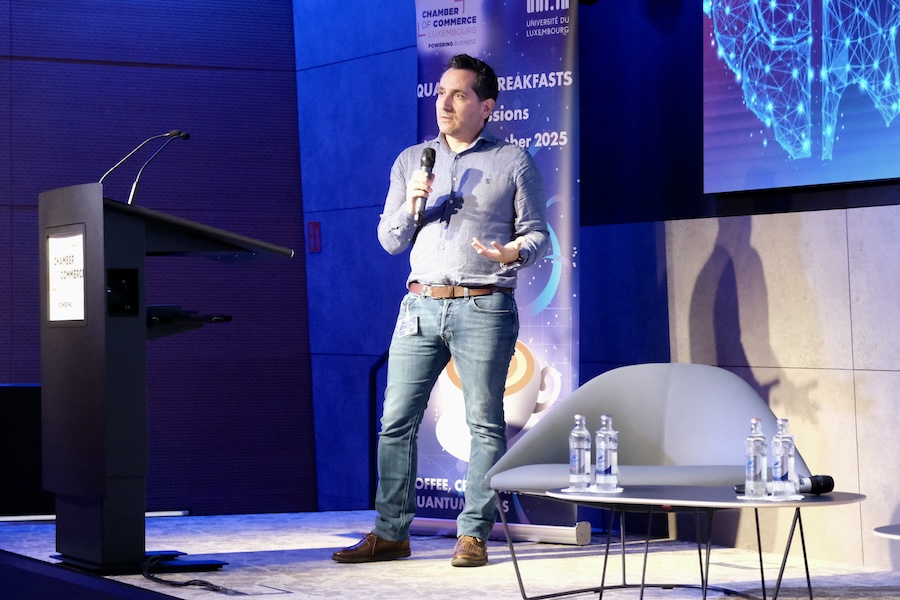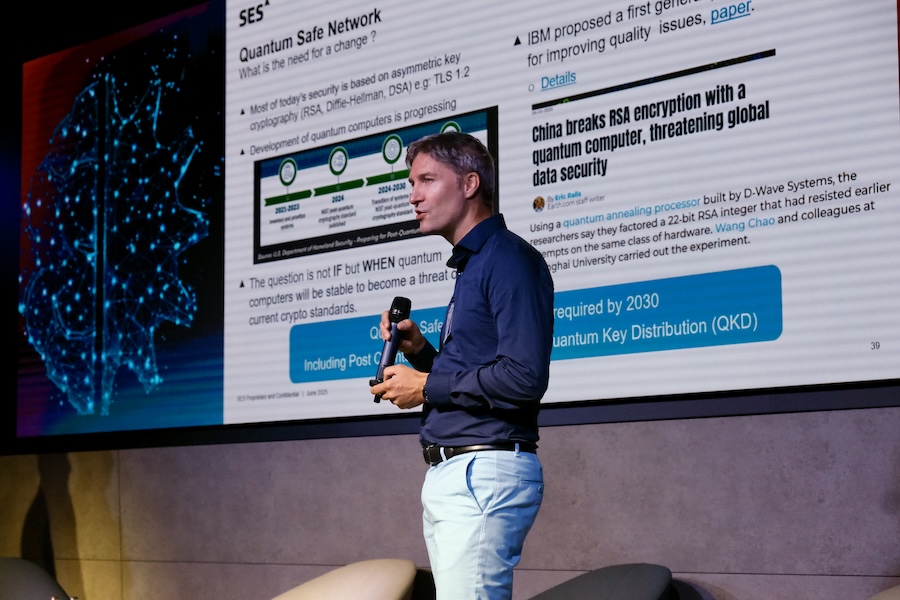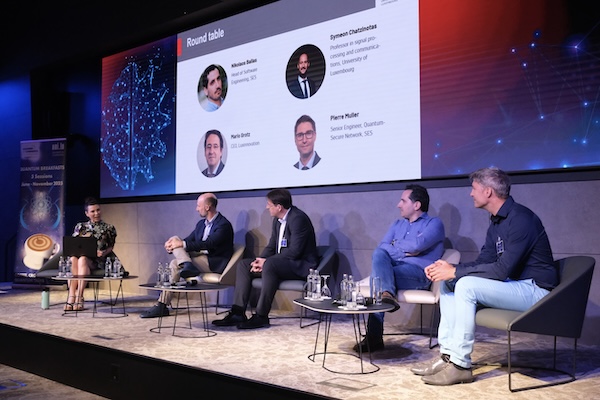 (L-R) Lisa Burke; Symeon Chatzinotas, University of Luxembourg; Mario Grotz, Luxinnovation; Nikolaos Ballas, SES; Pierre Muller, SES;
Credit: Steven Miller, Chronicle.lu
(L-R) Lisa Burke; Symeon Chatzinotas, University of Luxembourg; Mario Grotz, Luxinnovation; Nikolaos Ballas, SES; Pierre Muller, SES;
Credit: Steven Miller, Chronicle.lu
On Thursday 10 July 2025, the University of Luxembourg’s second Quantum Breakfast event took place at the Luxembourg Chamber of Commerce in Luxembourg-Kirchberg.
Guest speakers included Professor of Signal Processing and Communications at the University of Luxembourg, Symeon Chatzinotas, Senior Engineer, Quantum Secure Network at SES, Pierre Muller, and Head of Software Engineering at SES, Nikolaos Ballas.
The event began with a welcoming speech from Vice-Rector for Partnerships and International Relations at the University of Luxembourg, Marie-Hélène Jobin, who welcomed guests and attendees and talked about the University of Luxembourg’s involvement in quantum technology research and its collaboration with Luxembourg-based global communications satellite operator SES. She said: “Combining the capabilities of the industry and […] research is something that is of the utmost importance because it brings together the best and it is how we will have a vibrant and competitive sector. Allying the university and industry is really important, especially in topics like quantum communication.”
CEO at Luxinnovation, Mario Grotz, then spoke on the subject of the economic opportunities quantum computing represents for Luxembourg, investment by the European Union in quantum research and the importance of data security. He remarked: “There is a significant increase in market opportunities and we need to get our companies to build the necessary competences inside our companies in order to be able to benefit also from this development.” He added: “By investing in infrastructure, by investing in talent and in innovation, we can make sure that Luxembourg will not only become quantum ready but will also become a frontrunner in the development of these new technologies.”
Symeon Chatzinotas then gave a presentation on the development of the quantum internet, post-quantum cryptography and the main challenges within the development and implementation of different quantum technologies. On the subject of the challenges presented by classical vs quantum cryptography he noted: “Quantum computers are evolving, quantum algorithms are evolving and there is going to be a singularity event at some point where classical public key infrastructure cryptography will be very much challenged […] so of course we do not wait for this moment to happen, we are actively preparing.”
Addressing the current technological limitations which need to be overcome to implement quantum communications at scale, he stated: “The main bottleneck today is that we cannot do that because our technology can support kilobits per second of quantum information and our classical means are doing terabits of information and even more. So, you see that the gap is huge at the moment, but once we close this gap, we will be able to send directly digital information, imprinted on quantum bits.”
Pierre Muller and Nikolaos Ballas then gave a presentation on the work of SES in relation to quantum communication and how telecommunication companies will play a lead role in establishing and maintaining quantum communication infrastructures, defining which technological solutions are used for different purposes and the interoperability needed to ensure different countries and providers can work seamlessly together.
After a short break, the event continued with a round table discussion, which included contributions from Nikolaos Ballas, Symeon Chatzinotas, Mario Grotz and Pierre Muller and was moderated by presenter Lisa Burke. The topics discussed included the technological progress of quantum technologies by China, the need to avoid fragmentation of quantum development in the European Union (EU), the influence of defence policy on development and investment in quantum infrastructure, post-quantum cryptography and the role of the EU in maintaining the digital sovereignty of its member states.

